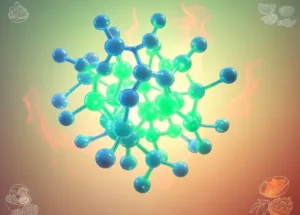
Table Of Contents
- Introduction
- What is the Quantum Internet?
- Advantages of the Quantum Internet
- Current Developments
- Challenges Ahead
- Future Prospects
- Conclusion
- References
Introduction
The quantum internet is set to revolutionize how we communicate. Unlike the classical internet, it uses the principles of quantum mechanics. This groundbreaking technology promises unparalleled security and speed.
What is the Quantum Internet?
The quantum internet utilizes quantum bits, or qubits. Unlike classical bits, qubits can exist in multiple states simultaneously. This phenomenon, known as superposition, allows for much faster data transmission.
Qubits can also be entangled, meaning the state of one qubit is directly linked to the state of another, no matter the distance between them. This entanglement is the cornerstone of quantum communication, enabling almost instantaneous data transfer.

Advantages of the Quantum Internet
- Enhanced Security: Quantum encryption methods are virtually unbreakable. Any attempt to eavesdrop on a quantum communication would be immediately noticeable. Quantum key distribution (QKD) ensures that any interception attempt disrupts the qubits, alerting the communicating parties (Phys Sci Tech) (livescience.com).
- Increased Speed: Quantum entanglement enables instant data transfer over vast distances. This could drastically reduce latency and improve efficiency. Current internet speeds are limited by classical physics, but quantum mechanics offers the potential for near-instantaneous data transfer (Phys Sci Tech).
Current Developments
Researchers worldwide are making significant strides. Institutions like MIT, IBM, and the University of Vienna are pioneering this field. Recent experiments have successfully transmitted qubits over long distances, bringing us closer to a functional QI.
For example, in 2020, Chinese scientists achieved entanglement-based quantum key distribution over a distance of 1,120 kilometers using the Micius satellite. This milestone demonstrates the feasibility of long-range quantum communication (Nature).

Challenges Ahead
Despite its potential, the QI faces technical hurdles. Maintaining qubit stability and building a reliable infrastructure are significant challenges. Qubits are extremely sensitive to environmental disturbances, which can cause decoherence, leading to loss of information.
Moreover, integrating quantum technologies with existing classical systems poses engineering challenges. Developing quantum repeaters, which extend the range of quantum communication, is crucial but technically demanding (ScienceDaily).
Future Prospects
The QI could revolutionize sectors like finance, healthcare, and defense. Its enhanced security features will be crucial in protecting sensitive data. In finance, quantum encryption can secure transactions and communications against cyberattacks.
In healthcare, it can protect patient data and enable secure sharing of medical records. Defense communications will benefit from unbreakable encryption, safeguarding national security (Phys Sci Tech) (livescience.com).
The QI will also enable new technologies and applications that we can’t yet imagine. Quantum cloud computing, where quantum processors are accessed remotely, could become a reality, offering immense computational power for complex problems (Phys Sci Tech).

Conclusion
The quantum internet is not just a futuristic concept; it’s becoming a reality. Its development will revolutionize communication, offering unprecedented security and speed. As researchers continue to make breakthroughs, the future of global connectivity looks incredibly promising. Stay tuned to see how the QI transforms our world.
References
- “Crucial connection for ‘QI’ made for the first time.” Phys.org, 2024. Link
- “Internet can achieve quantum speed with light saved as sound.” Phys.org, 2024. Link
- “Quantum network is step towards ultrasecure internet.” Nature, 2024. Link
- “Quantum Computing News.” ScienceDaily, 2024. Link
🌐✨ The Future is Here: Quantum Internet! ✨🌐
— Science Agenda (@ScienceAgenda) September 19, 2024
Imagine downloading entire movies in a second or having unhackable communications. That's not sci-fi; it's the quantum internet. But what makes it so revolutionary? Let's dive in! #QuantumLeap #TechTrends https://t.co/LxtSIfAOCW







